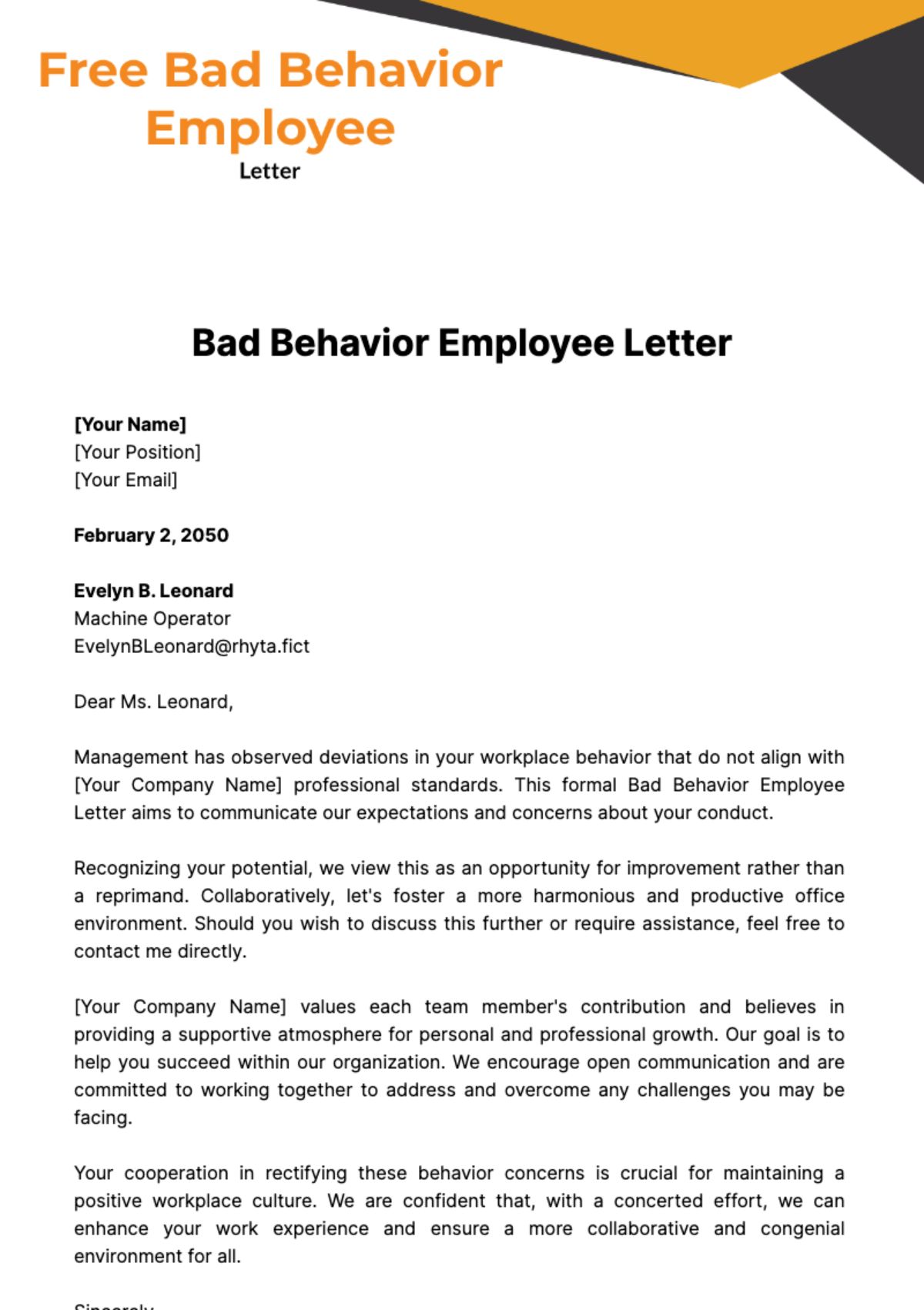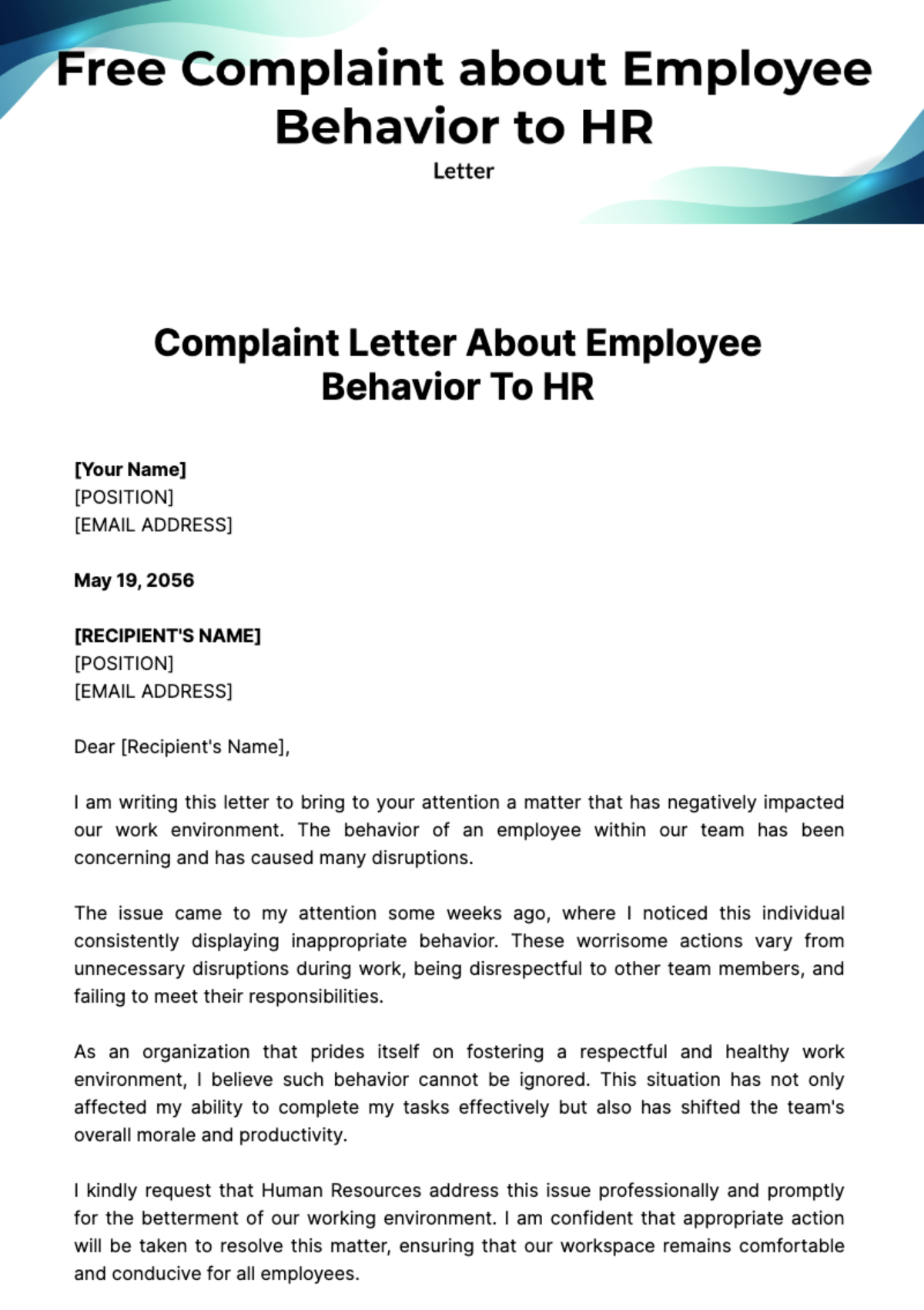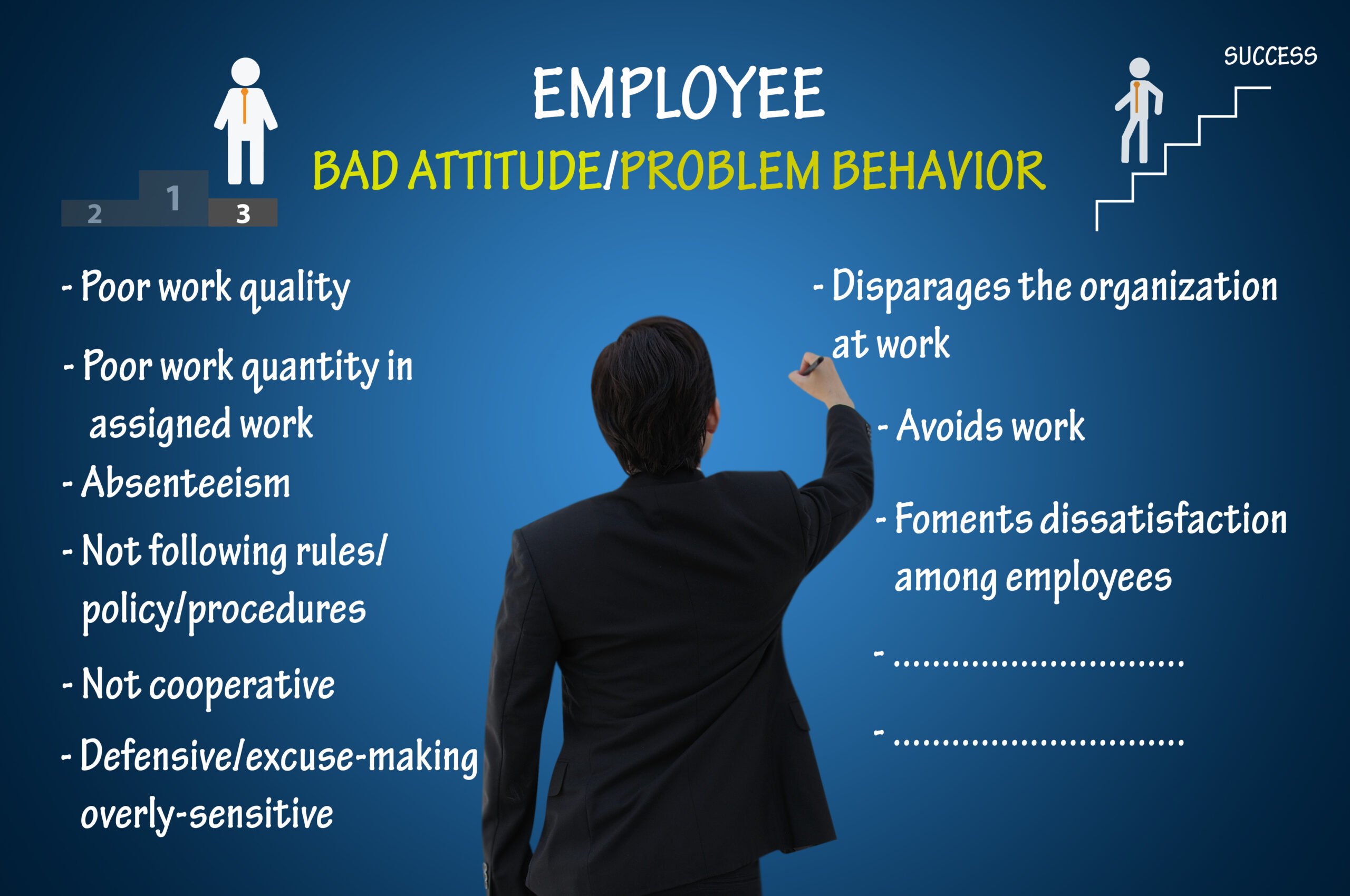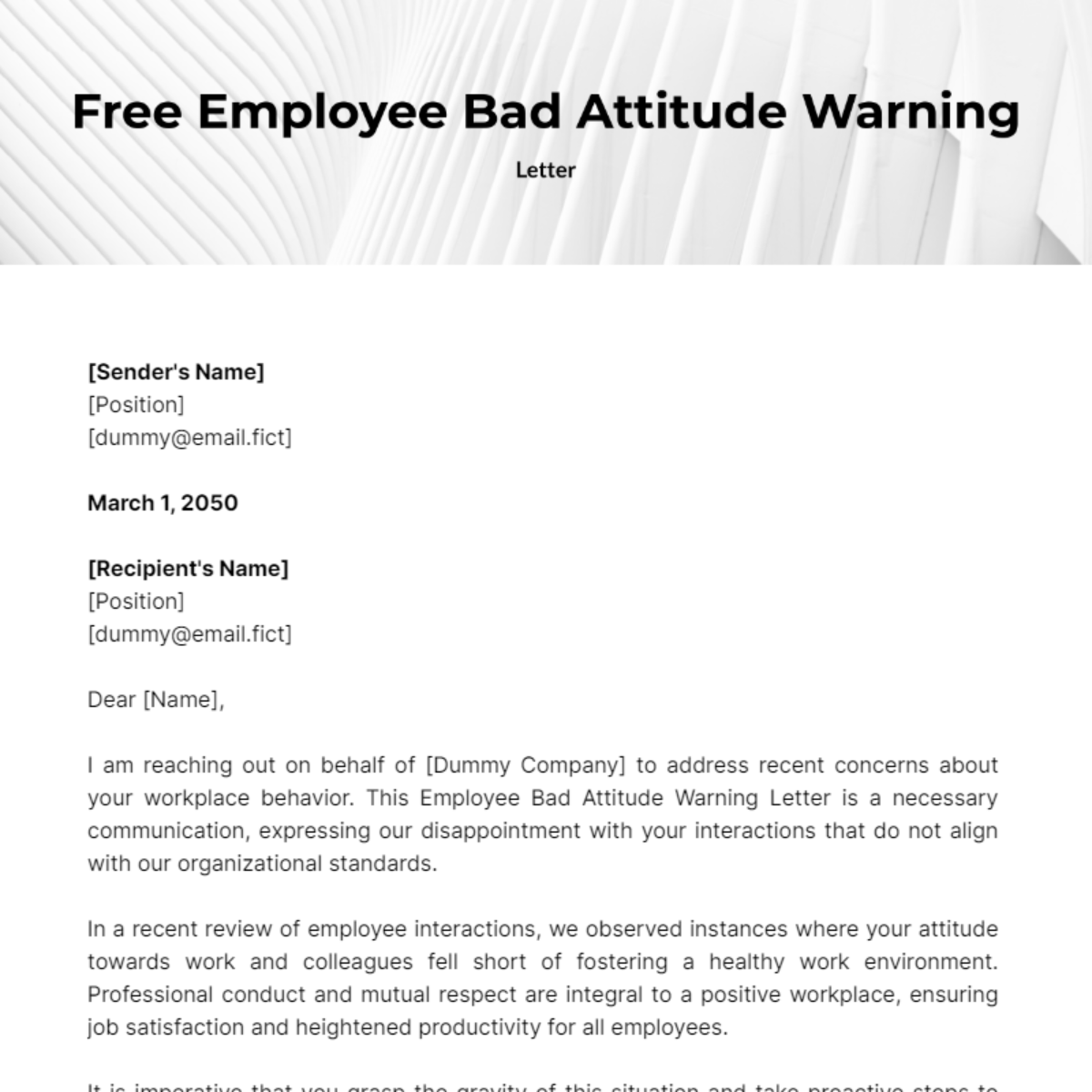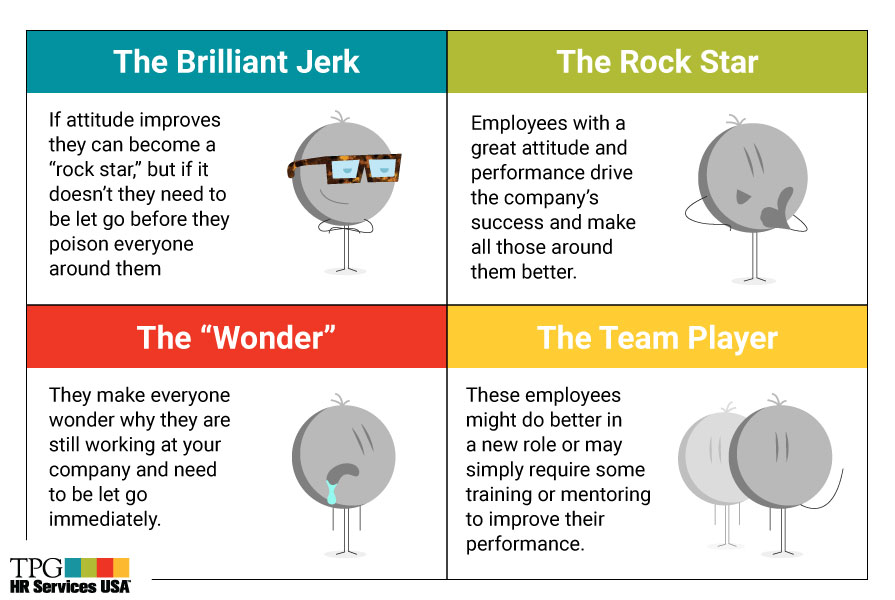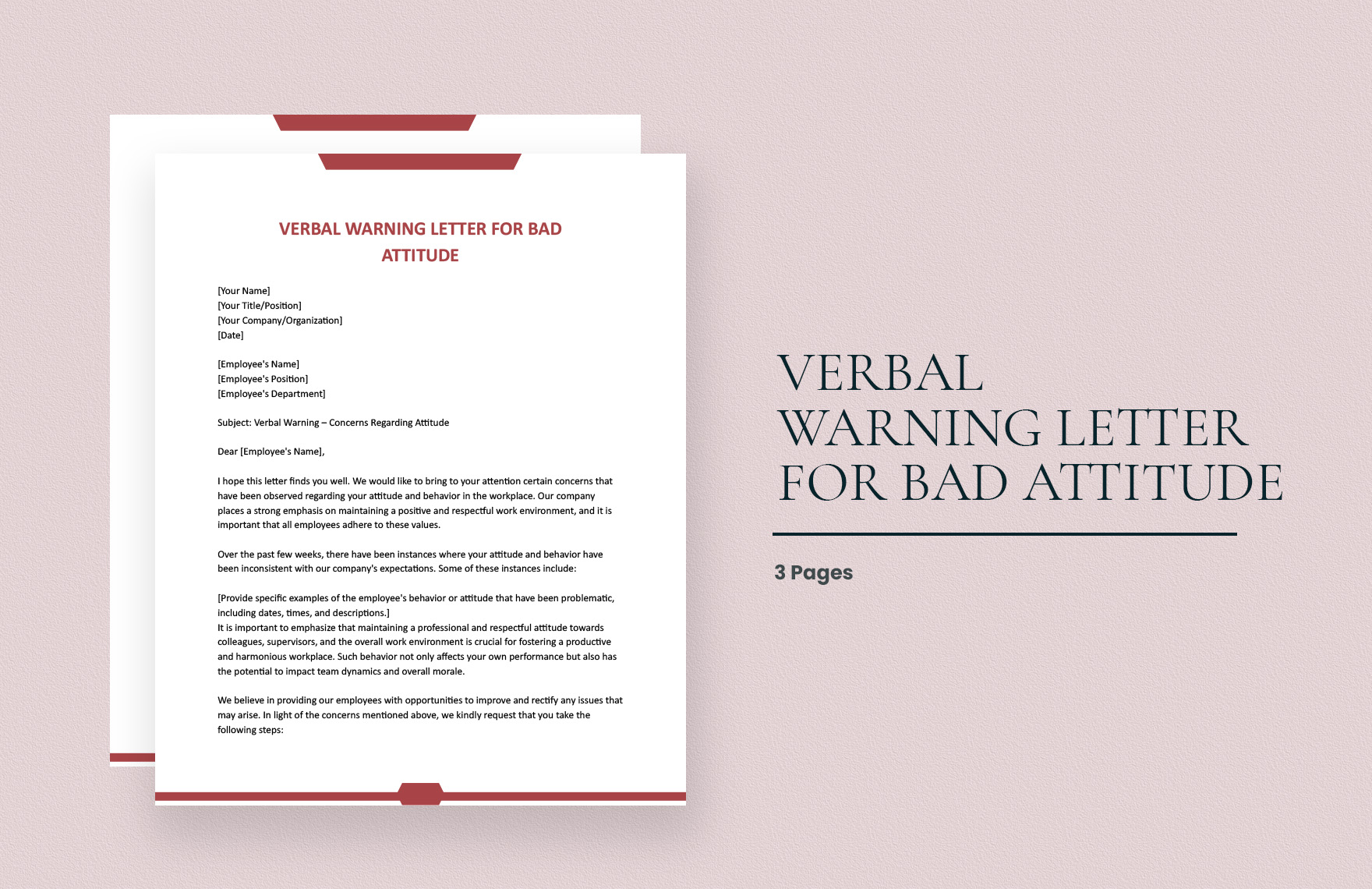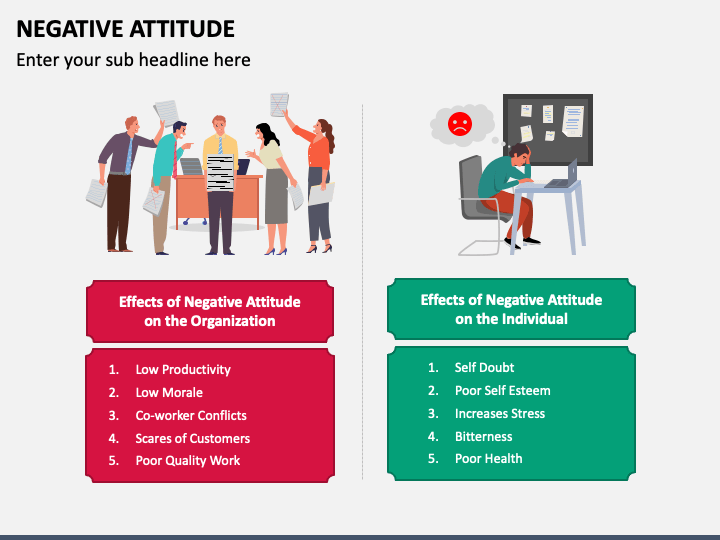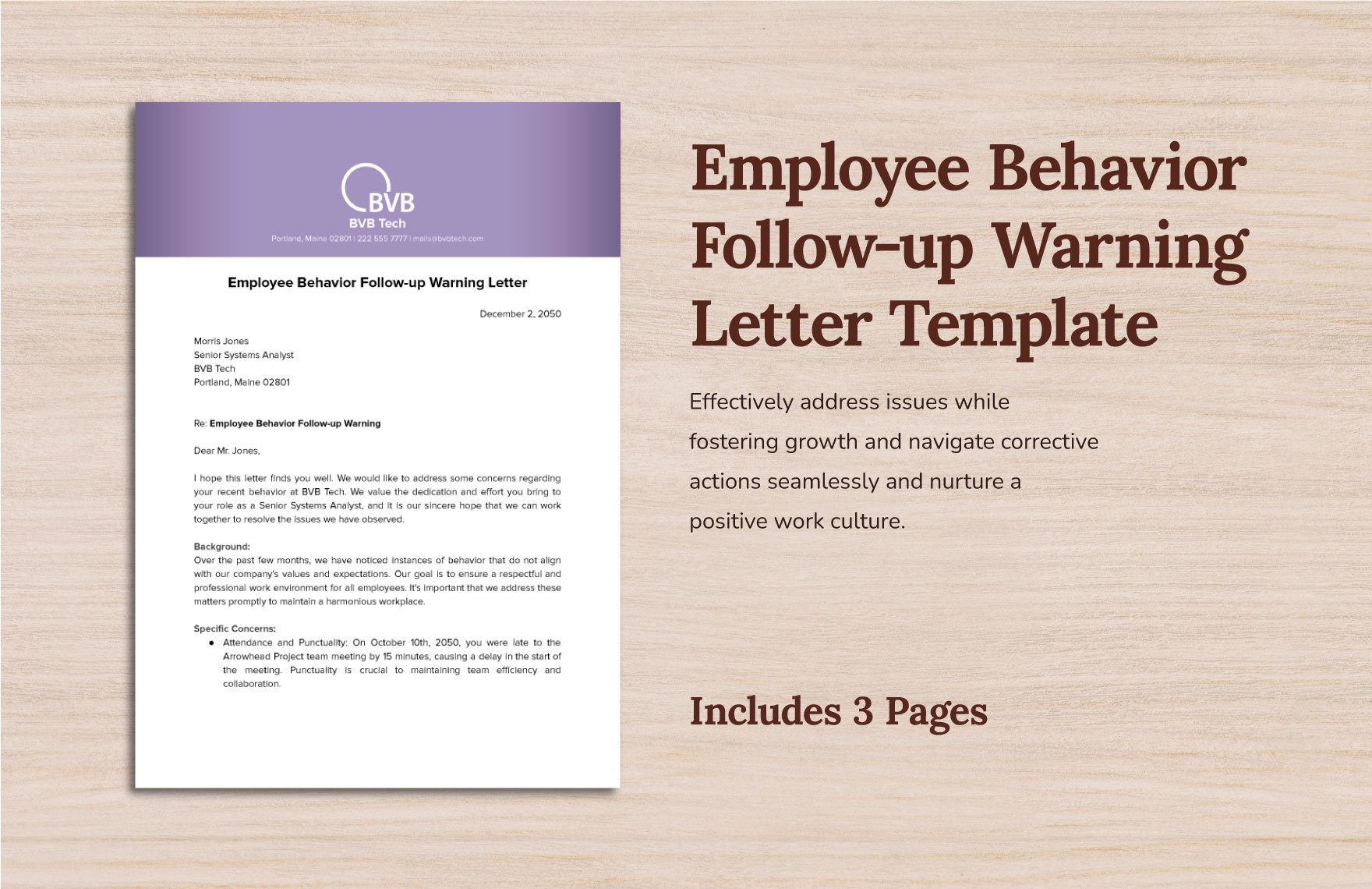How To Address An Employee With A Bad Attitude
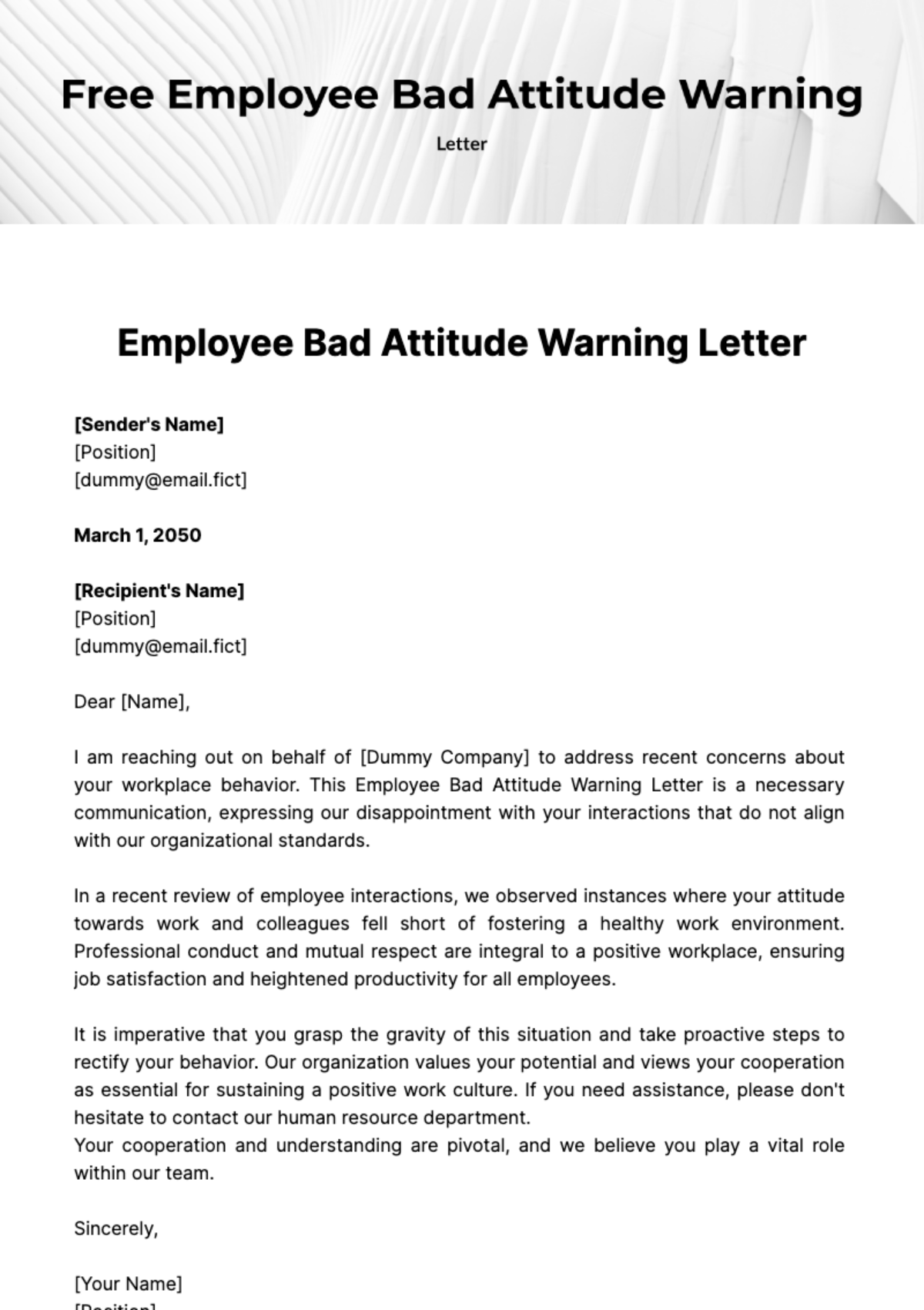
A consistently negative attitude from an employee can poison team morale and hinder productivity. Managers often grapple with how to address such behavior effectively without escalating the situation or causing further disruption.
The challenge lies in balancing the need to correct unacceptable conduct with the importance of fostering a supportive and understanding work environment. Experts emphasize that a proactive and empathetic approach is crucial.
The aim is not to punish or shame the employee, but rather to understand the root cause of the negativity and work collaboratively towards a solution. This article will explore practical strategies for addressing a bad attitude in the workplace.
Identifying the Root Cause
Before confronting the employee, it’s vital to gather specific examples of the problematic behavior. Avoid relying on hearsay or generalizations; focus on concrete incidents and their impact.
Consider whether external factors, such as personal issues or workplace stress, might be contributing to the negative attitude. A recent study by the American Psychological Association found that workplace stress can significantly impact employee morale and behavior.
Is the negativity a recent development or a long-standing pattern? Understanding the context can inform your approach and help you tailor your response.
The Conversation: A Delicate Balance
Choose a private setting for the conversation to ensure the employee feels comfortable and respected. Start by expressing your concern about the observed behavior without making accusatory statements.
Use "I" statements to communicate how the negativity is affecting the team or the overall work environment. For example, "I've noticed that there's been an increase of complaining and I'm concerned it could affect the team morale."
Listen attentively to the employee's perspective and allow them to explain their point of view. It’s important to demonstrate empathy and a willingness to understand their challenges.
Setting Clear Expectations
Clearly outline the expected standards of behavior and the consequences of failing to meet those expectations. Be specific about the types of behaviors that are unacceptable and provide examples.
Reinforce the company's values and code of conduct, emphasizing the importance of a positive and respectful work environment. Ensure the employee understands the impact of their actions on others.
Document the conversation and any agreed-upon actions, including timelines for improvement. This provides a record of the interaction and serves as a reference point for future discussions.
Offer Support and Resources
Explore whether the employee requires additional support or resources to address the underlying issues contributing to the negative attitude. This could include training, mentorship, or access to employee assistance programs.
Consider offering coaching or counseling services to help the employee develop coping mechanisms for managing stress and improving their communication skills.
Provide regular feedback and check-ins to monitor progress and offer encouragement. Positive reinforcement can be a powerful motivator for behavioral change.
When to Escalate
If the employee's behavior does not improve despite interventions, or if the negativity is severe and disruptive, it may be necessary to escalate the issue. Consult with HR to determine the appropriate course of action.
Disciplinary action, including warnings or suspension, may be required in cases of persistent misconduct. Ensure that all disciplinary actions are consistent with company policy and legal requirements.
Termination should be considered as a last resort when all other efforts to address the negative attitude have failed. Maintaining a positive and productive work environment is crucial for the overall success of the organization.
Promoting a Positive Workplace Culture
Addressing a bad attitude is often a symptom of a larger issue within the workplace culture. Proactively fostering a positive and supportive environment can help prevent negativity from taking root.
Implement strategies to improve employee engagement, such as regular team-building activities, recognition programs, and opportunities for professional development.
By creating a culture of open communication, mutual respect, and employee well-being, organizations can minimize the occurrence of negative attitudes and maximize employee satisfaction and productivity.

